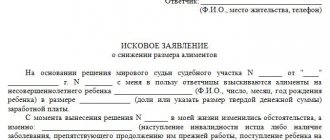Jurisdiction in criminal cases includes a number of terms, each of which is slightly different from each other. If we derive a general concept, then jurisdiction means the order of distribution of criminal cases for consideration in the courts of first instance. Thanks to the rules and procedures clearly spelled out in the Code of Criminal Procedure, each court is assigned a certain competence.
What cases are heard by courts of general jurisdiction?
Courts of general jurisdiction hear criminal, civil and administrative cases with the participation of citizens and organizations. Depending on the complexity of the case under consideration, a court of the appropriate level is appointed.
- Justices of the peace have limited powers and consider minor cases using a simplified procedure.
- District courts are courts of first instance, as well as an appellate instance when appealing decisions of the magistrate court. Their competence includes consideration of more complex and significant cases.
- If the case under consideration is particularly serious and painstaking, it is submitted to the courts of second instance - regional and regional courts of general jurisdiction, as well as courts of federal cities .
- The Supreme Court of the Russian Federation is the highest judicial body for civil cases, resolution of economic disputes, criminal, administrative cases and other cases within the jurisdiction of courts of general jurisdiction.
The following claims are filed in a court of general jurisdiction:
- on controversial civil, labor, family, housing and other issues
- on collection of funds (tax arrears, alimony debt, unpaid wages, etc.)
- about illegality or inaction of government bodies
- on establishing any legal fact (incapacity of a citizen, adoption of children, etc.)
Criminal proceedings about the concept and types of jurisdiction
Jurisdiction in criminal proceedings is determined by the provisions of Article 31 of the Code of Criminal Procedure of the Russian Federation.
There are two forms of determining jurisdiction:
- The system of judicial authority to accept for consideration the type of criminal cases regulated by law.
- A system of legal distinctive aspects inherent in the competence of the courts of initial instance.
The relevance of a criminal case to a specific court is confirmed by the competence, fullness of rights and status of the court in the hierarchy of the judiciary.
The meaning of the distribution of cases by jurisdiction is necessary for the following:
- be a guarantee of consideration of materials where they are required to be considered by law;
- allow the court to objectively consider a criminal case as soon as possible;
- the proceedings are carried out territorially where the criminal acts took place and the participants in the proceedings are registered;
- divide cases into categories and characteristics of the perpetrators.
The court, when accepting materials for proceedings, is obliged to establish its competence within the framework of the current procedural code.
In jurisprudence there are three forms of jurisdiction:
- It is characterized by a territorial feature - a territorial appearance.
- Characterized by the qualification of criminal manifestations - generic type.
- Characterized by the distinctive features of the subject - personal appearance.
When making a decision, each specified characteristic is evaluated independently. Used to divide cases involving criminal liability between courts.
Summary of court cases
To obtain general information about the number of cases brought against a potential counterparty that are under the jurisdiction of courts of general jurisdiction, you need to create a company card. Then, on the “ Summary Courts of General Jurisdiction block , which provides information on the number of cases in which the company of interest acts as a plaintiff, defendant, third party (involved at the request of one of the parties), as well as the number of cases for administrative offenses.
Block “Courts of General Jurisdiction”
Choice of jurisdiction by the plaintiff
There are exceptions to the general rule of territorial jurisdiction.
There are claims that the plaintiff has the right to bring to the court of his choice, that is, to choose the jurisdiction of the civil case.
The most common and typical situations:
- statement of claim for the collection of child support;
- statement of claim to establish paternity;
- a statement of claim for divorce, if minor children live with the plaintiff or for health reasons;
- claim for consumer protection;
- claim for compensation for personal injury.
In addition, this includes cases where:
- the location of the defendant is unknown;
- when the claim is brought at the location of the branch,
- at the place of conclusion or execution of the contract,
- when the case involves several defendants at different addresses,
In other cases provided for in Article 29 of the Code of Civil Procedure of the Russian Federation.
Detailed information on cases of courts of general jurisdiction
To obtain more detailed information, you need to click on the selected line in the block or go to the “ Courts of General Jurisdiction ” tab. On the tab, cases are grouped depending on the company's side in the case in question:
- defendant
- disputes under the Code of Administrative Offenses
- plaintiff
- third party
Court Case Analytics
Each case has a card that contains the following information:
- date of receipt at the source
- case number
- category , the nature of the claim is indicated
- plaintiff , full name of the company or full name of the citizen
- defendant , full name of the company or FIL of the citizen
- other participants , indicated if available
- court , name of judicial body
- judge , full name indicated
- result , summary of the court decision
In relation to cases of administrative offenses, the card will additionally indicate the article of the Code of Administrative Offences.
The Kontur.Focus system allows the user to go to the personal card of the plaintiff or defendant; to do this, simply click on the organization of interest.
The system's capabilities provide the function of downloading information of interest in any of the available formats: .xlxs, .docs, .pdf . This function is aimed at facilitating the work with the received information, since it allows you to exchange it with partners, as well as use it for further analysis.
Unloading
Information about criminal cases, expensive civil or administrative claims brought against a potential counterparty may indicate the unreliability of the company and possible financial difficulties. For a comprehensive assessment of the company’s activities, we recommend using the following capabilities of the Kontur.Focus system: SME registers, concluded government contracts, pledges of movable property, mentions on the Internet.
Competence
It is up to the prosecutor to determine the court that will consider criminal materials. When considering this issue, he is guided by the rule of jurisdiction, gives an assessment of the subject and the circumstances of the case established by the investigation.
The bulk of pending criminal cases are being processed by district courts.
In addition, cases under criminal articles are divided into several types:
- criminal cases under the jurisdiction of a magistrate;
- cases under criminal articles considered by higher courts;
- cases of military courts.
Speaking about the jurisdiction of criminal cases by the magistrate, it should be noted that this category of judges considers criminal manifestations of minor gravity.
The sentence is relatively short - less than three years in prison. The list is regulated by Article 31 of the Criminal Code and consists of criminal acts that qualify as:
- Intentional infliction of minor harm.
- Causing serious harm without the intent to cause it.
- Beaten up.
- Statements of intent to injure or commit murder.
- Slander.
A list limited by the indicated compositions was compiled at the legislative level so that the proceedings could depend both on the magnitude of the punishment and on the competence of the court to establish the truth.
Cases within the competence of the courts, taking into account the complexity of the composition and the provided liability, as well as the statements of the subject, are subject to consideration:
- a judge with two assessors;
- three judges;
- exclusively by a jury.
When episodes of a criminal act occurred not in one district, region or republic, but in different places, it is necessary to provide for the principle of determining jurisdiction based on the largest number of episodes or the more serious one. These provisions are set out in the second part of Article 32 of the Code of Criminal Procedure.
The legislation provides for the presence of military courts. In international law there is such a thing as an international military tribunal.
The current version of the law allows this category of courts to determine jurisdiction, taking into account:
- Territorial sign.
- Place of deployment of a military unit or fleet.
The category of courts under consideration is the first instance. Article 31 of the procedural code, in accordance with the norms of parts 5–8, determines the names of cases within the competence of military courts.
Cases are accepted for proceedings when the defendant:
- a serviceman serves in military units;
- citizen at military training;
- is a person who has been transferred to the reserve or has completed training, but committed a crime during the period of service and participation in training.
If a military court is located abroad of the Russian Federation, then it has the right to consider cases within the jurisdiction of regional courts. The exception is the cases set out in part 4 of the seventh article of the law on military courts, when the requirements of treaties in Russia and other countries must be taken into account. His powers include the consideration of all cases, except those within the jurisdiction of a higher court and the naval court.
The military district judiciary considers complex cases, with penalties ranging from 15 years to life imprisonment.
Accepts for production:
- Materials on appealing decisions of military or naval district courts that have not entered into force.
- Materials on appealing decisions made by military or naval district courts that have entered into force.
- Materials on newly discovered facts within the framework of judicial acts adopted by the Military Collegium itself, which have legal force.
This judicial body is authorized to inform interested parties about decisions made, based on the materials reviewed, and to prepare reviews of legal activities.
The Supreme Court is the main judicial body of the state for the entire range of cases considered by the judicial system.
The majoritarian character inherent in this court is to perform the following functions:
- implement a differentiated approach, control over the activities of subordinate courts;
- in the appellate procedure, decide cases based on new circumstances, and in an exceptional manner established by law, be the primary instance;
- review established practice and explain, using examples, the position of the highest court.
This authority exists to ensure a common understanding of constitutional requirements at the present stage.
Transfer of the case to jurisdiction
According to the general rule, enshrined in Article 33 of the Code of Civil Procedure of the Russian Federation, a change in the jurisdiction of a case, which was decided by the court in compliance with the rules of jurisdiction, is not allowed.
There are exceptions to this rule when the court can transfer a case with jurisdiction to another court:
- the court finds that it accepted the case in violation of jurisdiction;
- an application will be received from the defendant, whose place of residence was not known when the claim was filed;
- the plaintiff and defendant will request the transfer of the case to the location of the evidence;
- all judges were challenged.
The transfer of the case can be carried out by the court on its own initiative or upon an application for transfer of the case to jurisdiction, written by an interested person. The transfer of a civil case to another court is formalized by a court ruling, which can be appealed by filing a private complaint against the court's ruling.
Author: Oleg Vladimirovich Roslyakov, source.
Exclusive jurisdiction of the district court
Exclusive territorial jurisdiction means that claims will be considered only in a specific court; it is impossible to change this jurisdiction by agreement or choose the plaintiff.
Civil cases considered under the rules of exclusive jurisdiction include:
- violation of the rights to a building, structure, land plot or any other stationary object belonging to a person, including the seizure of such objects;
- demands made by the creditors of the person who opened the inheritance until the inherited property is distributed among potential heirs;
- violations by cargo carriers of the terms of transport contracts.
In addition, if a citizen’s claim arises from a criminal case (when it was not filed or was simply not resolved when a criminal case was initiated), then this claim is subject to jurisdiction only by the district court, which considers it according to the rules of civil procedure.






